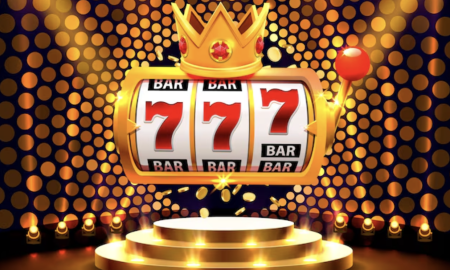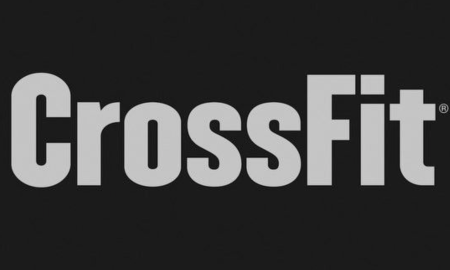Introduction
Online gambling is currently a worldwide success, but before engaging in any online casino activities, it is important to educate yourself about the laws and regulations governing casinos and gambling in your local region.
While some bigger countries, such as the United States, have well-documented and widely available web resources with thorough descriptions of their gambling laws and regulations, other countries make it a bit harder to find plain and intelligible information about their gambling laws.
This is why we have put together this blog post to explain how gambling works in New Zealand. In the article below, we will go over all you need to know about the gambling laws in New Zealand.
It is believed that around 80% of Kiwis of legal gambling age engage in some form of legal gambling. A portion of those gamers solely play lottery games, but a sizable proportion also love pokies, sports betting, poker, and traditional casino games.
When it comes to betting and gambling entertainment, the nation’s regulating organizations that control the gambling sector are extremely clear about what is and is not permitted. Let’s take a look at the current rules and regulations for online gambling in New Zealand.
Is Online Gambling Legal in New Zealand?
Online gambling is allowed in New Zealand, but the regulatory environment is more complicated than a simple “yes, it is legal.”
The Gambling Act of 2003, as well as later updates and changes, is the head of the legal framework controlling all types of gambling in New Zealand. Individuals must be at least 18 years old to participate in different types of gambling in New Zealand.
This covers actions such as purchasing lottery tickets, obtaining scratch cards, and betting on sporting events and horse racing. Any gaming activities that fall outside the scope of the Gaming Act of 2003 are unlawful and forbidden. We will get to the specifics of the Gambling Act of 2003 shortly.
It is essential to be aware that while no internet casinos are permitted to operate within New Zealand’s borders, international online casinos are theoretically allowed.
This effectively means that New Zealand players have the option to pick from a variety of online casinos that accept New Zealand citizens’ registrations, like Christchurch casino online, even if these gambling businesses are not formally regulated by the New Zealand Gambling Commission.
In conclusion, while internet gambling is legal in New Zealand, it is critical to follow the precise laws provided in the Gambling Act of 2003. Players should take caution and select trustworthy online casinos that accept New Zealand registrations, as these international companies are not regulated by local authorities.
The New Zealand Gambling Act of 2003
This Act, which established a regulatory framework for New Zealand gaming, supersedes the Gaming and Lotteries Act of 1977 and the earlier Casino Control Association Act of 1990 as New Zealand’s principal gambling law.
The Gambling Act of 2003 was presented into Parliament in early 2002 as the Responsible Gambling Bill, with the goal of controlling the expansion of gaming in New Zealand while preventing and limiting any harm from gambling exposure.
This Act is New Zealand’s statutory statute governing the legality and prohibition of many sorts of gambling games. Let’s take a look at what it actually contains.
The Gaming Act of 2003 provides for many types of gaming entertainment and categorizes them into four distinct classifications.
The majority of gamblers are interested in Class 4 gaming. Various gambling establishments are classified into one of four categories based on the magnitude of the reward available, as well as other pertinent characteristics.
Lotteries, housie (the NZ name for bingo), pokies (poker slot machines), poker, and casino gambling are all allowed in New Zealand under the Gambling Act of 2003. There are a few high-quality brick-and-mortar housie venues and casinos in New Zealand, and pokies may be found in a variety of bars and retail venues.
The Gambling Act clearly forbids remote interactive gaming from gambling sites situated within New Zealand, with the exception of specific Lotteries Commission and Racing Act 2003 services.
However, the Department of Internal Affairs, New Zealand’s major gambling regulatory body, has stated that it is not unlawful for Kiwis to play at sites that are licensed, regulated, and situated outside of New Zealand’s boundaries.
So, while it is illegal to offer online gambling to New Zealand people via a New Zealand-based firm, it is completely legal for players to participate in licensed and controlled offshore online gaming.
It is very good news for gamblers that the Department of Internal Affairs’ official website expressly provides this information, ensuring that there is no doubt about the legality of internet gambling in New Zealand.
Other countries simply do not handle the issue, leaving offshore interactive gambling as a gray area of their criminal legislation, generating concern among players interested in this sort of gambling.
New Zealand’s government authorities do not appear to be concerned with regulating its inhabitants’ gambling habits but rather with providing a safe and secure environment for them by removing illicit gaming activities. This is a sensible and measured approach to legislation, which is a rarity.
New Zealand Gambling Classes
Class 1 gambling is limited to rewards or turnover of more than $500. If the gambling is done by a single individual, all revenues, including interest, must be applied to the winners. Individuals are only permitted to run Class 1 gambling.
Class 2 gambling must include rewards ranging in value from $500 to $5,000. The potential turnover must be greater than $500 but not greater than $25,000. Class 2 gambling does not require a license, but it must be carried out by organizations as described by the Gambling Act.
Class 3 gambling must offer prizes worth more than $5,000. Finally, Class 4 gambling is typically defined as gambling using gaming machines. Classes 3 and 4 must be administered with a license.
International Casino Licensing
The United Kingdom Gambling Commission, Malta Gaming Authority, Gibraltar Gambling Commissioner, Isle of Man Gambling Supervision Commission, and Curaçao Gaming Control Board are some examples of international gaming regulators that give licenses to online casinos for the worldwide market.
While other licensing agencies exist, the Malta Gaming Authority licenses a major share of platforms supplying the New Zealand market, making it a recognizable standard.
If the authority that is cited as licensing your online casino of choice is unknown to you, it’s a good idea to look into its reputation for further confidence. Do your homework carefully because there are many fraudulent internet casinos.



















Follow Us